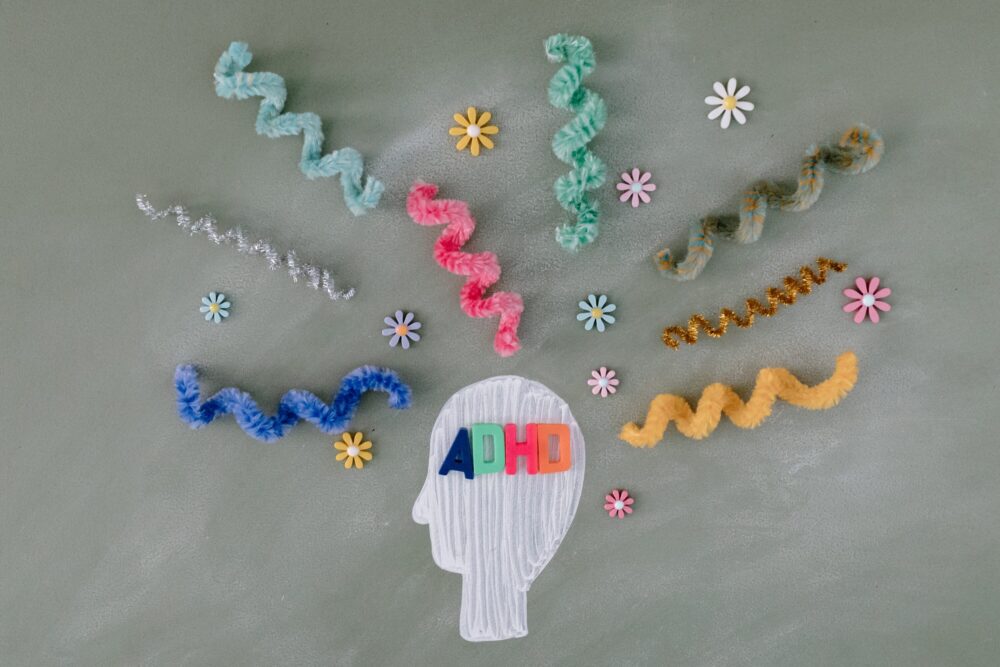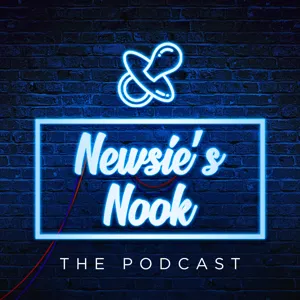Podcast Summary
Rethinking Housework - Overcoming Shame and Achieving Equitable Division of Labor: Housework should not be a source of shame or guilt. View it as morally neutral and prioritize equitable division of labor. Break down cleaning into manageable categories and remember that housework should serve you, not the other way around.
Housework is a deep subject that can bring us down in many ways. Casey Davis, a self-styled anti-perfectionist, believes that we shouldn't use shame as a motivator to do care tasks. It's important to view housework or care tasks as morally neutral, and understand that you don't exist to serve your space, your space exists to serve you. Achieving equitable division of labor around the house is essential. The power of category cleaning or breaking down the clean, not clean binary is important. Doing dishes has nothing to do with whether you're a good or bad person and laziness doesn't exist. Housework should serve you, not make you feel guilty or ashamed.
Overcoming Overwhelm with Housework During Stressful Times: Anti-perfectionism is key to reducing overwhelm with housework. Rethink current standards and let go of societal pressures. Remember, your space exists to serve you, not the other way around.
The issue of feeling overwhelmed by housework is relatable to many people, compounded by the pandemic. Women in particular resonate with this due to societal expectations of femininity and motherhood, while men may not have been taught the necessary skills. Stressful periods that affect work also affect home life, creating a constant reminder of one's perceived failure to keep up with perfectionistic ideas. The core message is anti-perfectionism, reminding us that our space exists to serve us, not the other way around. It is important to ask ourselves if our current standards work well for us and our lifestyle, and to let go of the pressure to conform to societal expectations.
Shifting the Narrative: From Moral Obligations to Personalized System: Decouple care tasks from moral obligations and embrace personalized systems that work for us and not what is considered right or normal. Our spaces should work for us, and we deserve to be taken care of.
It is important to shift our thinking about care tasks or housework as merely functional tasks that we engage in to take care of ourselves rather than moral obligations that we need to fulfill. We must think about what works for us instead of what is considered right or normal. This is because our ultimate goal is to make our spaces functional and habitable for us. Therefore, we should not be ashamed or feel guilty about our personalized systems, as long as they work for us. We must recognize that we deserve to be taken care of, and our care tasks are meant to serve this purpose. Ultimately, our space should work for us and not the other way around.
Customize your home for functional systems that serve you.: There are no rules for care tasks, so think outside of paradigms to customize your space. Simplify tasks like laundry and move your bed to suit your needs.
Creating functional systems throughout the house is the key to making the space serve us rather than the other way around. Care tasks are morally neutral, and there are no rules for how we should do them. Going outside the traditional paradigms can help customize our home to our needs. KC Davis created a family closet and a no-fold system to reduce stress and increase functionality. She realized that she didn't need to fold most of her clothes and created a bin system instead. The result is a routine completion of laundry and a constant supply of clean clothes. Customizing the home based on the family's needs is essential. The follower moved her bed into the living room to comfortably watch TV with her partner.
Letting Go of Shame and Perfectionism in Organizing: Messiness is not a moral failing. Create a space that serves you, even if it's unconventional. Being hygienic is good, but having a clean or pretty space does not make you inherently good or righteous.
Cleanliness being next to godliness is a misinterpretation of a biblical passage and has been used to shame individuals, especially those who struggle with organizing or have ADHD. Shame and perfectionism go hand in hand and can hold us back from functioning. Letting go of this subtle shame and finding freedom in our lives can lead to joy and functionality. It's important to understand that messiness is not a moral failing and has no inherent meaning. Instead, we should strive to create a space that serves us, even if it's unconventional. Taking care of ourselves and being hygienic is good, but having a clean or aesthetically pretty space does not make us inherently good or righteous.
The Pitfalls of Self-Help Movements and Why We Should Prioritize Self-Care: Before starting a self-improvement journey, it's important to check in with oneself and prioritize self-care to avoid exacerbating shame. Let go of external pressures and reprioritize what's truly important for a better quality of life.
The anti-diet movement promotes intuitive eating and rejecting external measurements of goodness. Self-help movements like Marie Condo and Rachel Hollis can be life-giving, however, they can exacerbate one's sense of shame if they do not help the reader check in on their own journey. Prioritizing self-care informs how we design and operate in our home which has a huge impact on our overall quality of life. Letting go of external pressures such as perfect Instagram aesthetics and instead, prioritizing oneself leads to reprioritization of what is important, caring for oneself. Before undertaking any self-improvement journey, one should first check in on what kind of journey they're on to avoid exacerbating shame and creating difficult to upkeep systems.
Starting with Self-Acceptance for Sustainable Change and More Joy in Life: By recognizing our worthiness and addressing individual barriers through self-care, we can introduce more joy and self-compassion into our lives. Customizing our approach can make the journey towards sustainable change more achievable.
Instead of trying to improve ourselves to feel worthy, we should start with the belief that we are already worthy. By starting with self-care and focusing on sustainable, organic change, we can introduce more joy into our lives. Customizing our approach based on our individual barriers, support, energy, and time can make the journey more sustainable. So, instead of adopting a new system completely, start by acknowledging that we deserve to wake up to a functional kitchen, knowing where things are, and having clean dishes. This shift in mindset can lead to less shame, more self-compassion, and self-acceptance.
The fallacy of laziness and tips for better organization: Prioritizing rest or other tasks over cleaning does not equate to laziness, and avoiding shame while focusing on the reasons behind messiness can lead to effective organization. Plus, check out the 'Fast and Loose with Wonder' podcast for insider info on F1 racing.
KC Davis believes that laziness doesn't exist and one's choice to prioritize something else over cleaning or organizing shouldn't be labeled as lazy. It's important to examine the situation and see if the house or things still function well before feeling guilty about not cleaning. Having different priorities or choosing to rest is not equal to being lazy. It's essential to avoid shame when it comes to organizing things and focus on the reasons behind the messiness to make improvements. Additionally, people can learn practical tactics to utilize around the house for better organization. Furthermore, the podcast 'Fast and Loose with Wonder' provides insider knowledge on F1 racing for racing enthusiasts to gain knowledge about driver insights, latest updates, and behind-the-scenes happenings.
Understanding and Overcoming Motivation and Task Initiation Issues: Motivation and task initiation issues are not character flaws- they are a result of brain function. By making small adjustments, recognizing the value in tasks, and delving deeper into individual struggles, we can improve these skills and overcome procrastination.
Motivation and task initiation issues are not character flaws but rather a result of brain function. We can improve these skills by teaching new techniques and creating a more accessible environment. It's important to recognize the value in tasks to improve motivation. Procrastination is not always a sign of laziness but can be due to task initiation issues. Making small adjustments, like creating a system for the produce drawer, can make a big difference. As clinicians, it's important not to label individuals as lazy but to delve deeper into the reasons behind their struggles.
Categorizing to Tackle Overwhelming Messes: By categorizing overwhelming tasks into smaller, more manageable categories, we can effectively address the root cause of problems and make positive changes in our lives. Changing our environment can also aid in self-discipline.
Changing your environment can help improve self-discipline, like reorganizing your fridge to keep produce in sight. KC Davis' category cleaning is a strategy to tackle overwhelming messes by categorizing them into five types of items: trash, dishes, laundry, things that have a place but aren't in it, and things without a place. This helps break down a seemingly insurmountable task into smaller, more manageable categories. By recognizing and addressing the root cause of problem behaviors or situations, like forgetting to eat produce, rather than just trying harder next time, we can more effectively make positive changes in our lives.
Simplifying cleaning and organizing with category cleaning and five things tidying method.: Follow a step-by-step approach to declutter your space with category cleaning and five things tidying method. Start with basic things, create permanent homes, and prioritize important mails and papers.
Cleaning and organizing can be overwhelming, but following the category cleaning or five things tidying method can help. Start by picking up trash and dishes first, then go around the room putting away items that have a place. If you find something without a place, make a pile and deal with it later while listening to a podcast or watching a show. Creating permanent homes for things can make the process faster in the future. Having a bucket for things that belong in another room can help keep you focused. When dealing with mail and papers, be ruthless and only keep what is necessary. Create separate piles for actionable and fun mail to keep things organized.
Practicing Self-Compassion and Controlling Paper in the Domestic Context: Self-compassion involves accepting and reconciling with one's imperfections, which can aid in overcoming self-destructive behavior caused by excessive self-hatred. Prioritizing documents and practicing self-compassion can lead to growth as a human being.
Self-compassion is about giving oneself permission to be human, recognizing that pain, worthlessness, and failure are universal human experiences. It's not about liking or loving oneself but about accepting and reconciling one's imperfections. In the domestic context, controlling paper involves keeping only documents related to specific categories and prioritizing other aspects like dealing with creative artwork or a chronically messy car. Prioritizing and practicing self-compassion can help in overcoming self-destructive behavior and cycles caused by excessive self-hatred. Dr. Kristen Neff's self-compassion research can help in understanding and practicing self-compassion. The goal is not to make oneself worthy of being loved but to learn and grow as a human being through compassionate self-acceptance.
The Power of Self-Compassion and Gentle Self-Talk for Motivation and Wellbeing.: Recognize critical self-talk and replace it with compassionate language, practice moral neutrality, and cultivate self-compassion. These simple steps can lead to positive impact on diverse aspects of our lives and happiness.
Practicing self-compassion and gentle self-talk can positively impact motivation, stress levels, and overall wellbeing. Recognizing critical messages we give ourselves and replacing them with compassionate self-talk is key. This approach allows us to choose rest or any other positive decision without lying to ourselves. Inner dialogue is influenced by our social upbringing, and identifying these influences is important for personal growth. Moral neutrality, recognizing that things are working or not working without labeling them as right or wrong, and self-compassion are the building blocks that underlie this philosophy. Practicing self-compassion is accessible to everyone and can have a huge positive impact on our lives.
The Impact of Childhood Messages on Adulthood Cleanliness and Care Tasks: Reflect on childhood messages about cleanliness and care tasks, become aware of negative self-talk, and reframe thoughts with self-compassionate curiosity. Recognize the positives of a messy house and don't let it bring you down.
Our childhood experiences and the messages we received about cleanliness and care tasks can greatly impact our adulthood. We may have anxiety around mess or prioritize cleanliness over self-care, and may struggle with odd gendered messages about who should do what around the house. Rather than rushing to fix ourselves, it's important to non-judgmentally become aware of when we're telling ourselves these negative messages and ask where they came from. Developing a mindful, non-judgmental curiosity can help us reframe our thoughts in a self-compassionate way. We can recognize the positive things that may come from a messy house and not let it bring us down.
Shifting from 'Done' to a More Compassionate Perspective on Care Tasks: Instead of just focusing on completing tasks, we can show ourselves kindness by acknowledging the various stages of care and looking at them as opportunities for growth and self-reflection. This shift in perspective can improve our overall well-being.
We often see care tasks in two states - done and not done, but in reality, they exist in various stages of a cycle. Rather than focusing on achieving the 'done' stage all the time, it's important to have compassion towards ourselves during the cyclical process. We can intentionally change our perspective on these tasks by asking ourselves what else they could mean about us. Sometimes they mean something good about us, and sometimes they mean that we are having a hard time, but either way, we deserve compassion. Looking back with kinder eyes sooner on our struggles and accomplishments can bring us a more positive perspective on our lives.
Embracing the Cyclical Nature of Household Chores: It's okay for household tasks to be in different stages at any given time. Find a routine that works for you and take time to rest and enjoy. A 25-minute period at the end of each day can be used to tackle remaining tasks.
The key takeaway is to embrace the cyclical nature of household chores and understand that it's okay for dishes, laundry, cleaning, and other tasks to be in various stages at any given time. The goal is to turn these cycles at a functional pace, producing clean dishes and a functional environment while allowing time for rest and enjoyment. To achieve this, one should identify what works best for them, their personality, brain, family, and support system. If traditional habits like clean as you go don't work, it's okay to adapt and find a routine that suits you. One can schedule a 25-minute period at the end of each day to tackle the remaining tasks and shut down the house for the night.
The Fair Play Method: Achieving a Fair Division of Labor: Fairness is more important than workload when dividing household tasks. Use the Fair Play Method to allocate tasks equitably, recognizing that everyone deserves rest regardless of work or income.
When it comes to achieving an equitable division of labor around the house, it's essential to recognize that socialization plays a role in how we approach care tasks. Having an explicit conversation about the division of labor is more helpful than an ambiguous conversation. Instead of thinking about who is working more or harder, it's better to shift the conversation to whether the rest is fair. The Fair Play Method by Eve Roski is an effective way of allocating tasks in an equitable way. Even if you work less, make less, or have an easier job, you still deserve to rest.
Sharing the Burden of Care Tasks: The Importance of Time and Energy Balance in Relationships: Avoid a disproportionate burden of care tasks. Take turns, share responsibilities and give each partner the chance to rest and recharge, regardless of gender.
Care tasks are cyclical and never-ending. The burden of daily care tasks should not fall predominantly on one partner, as it deprives them of time autonomy and the ability to rest and recreate. This becomes more apparent when it comes to parenting. In a heteronormative relationship, it is usually the woman who takes on the majority of child-rearing responsibilities. Everyone deserves to rest, regardless of the type of labor they do. Partners should take the initiative to share the burden of care tasks to allow their significant other time and energy to rest and pursue their hobbies or interests.







